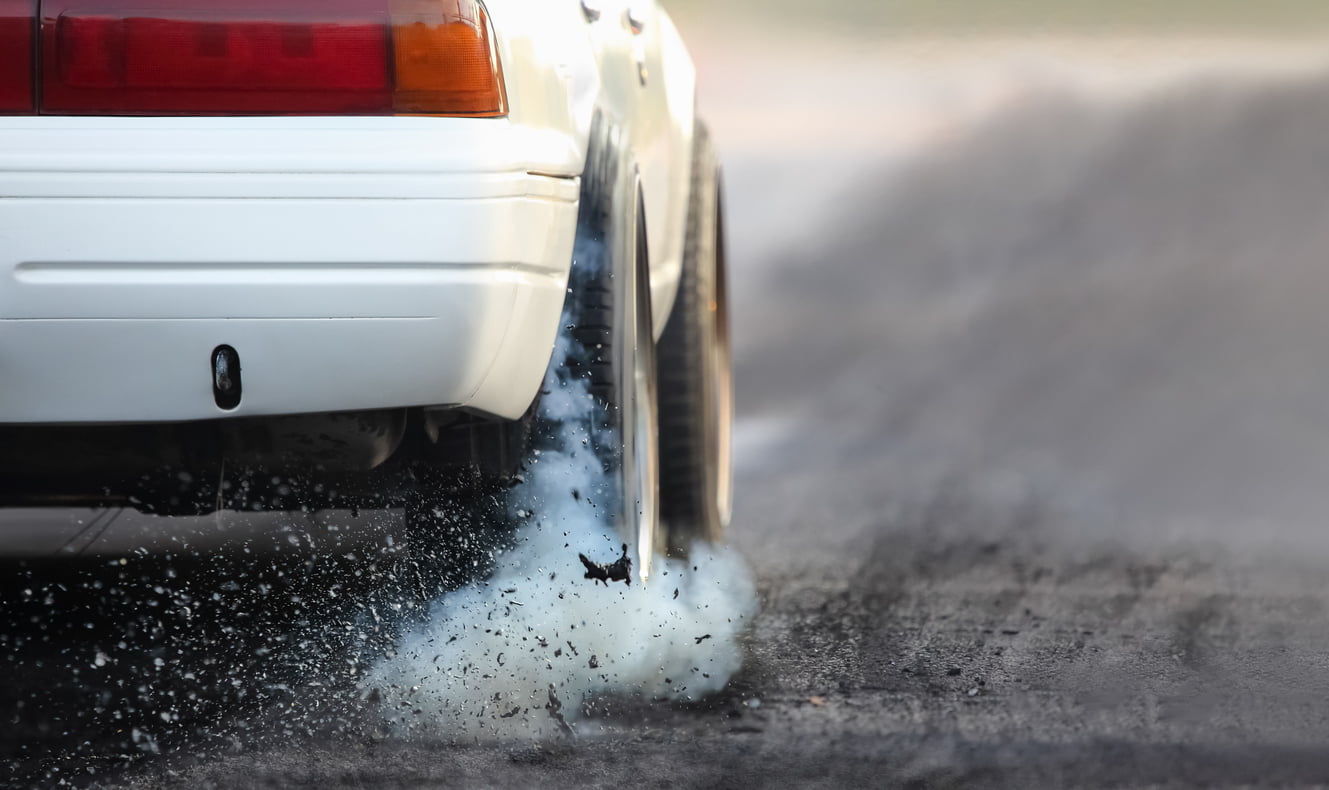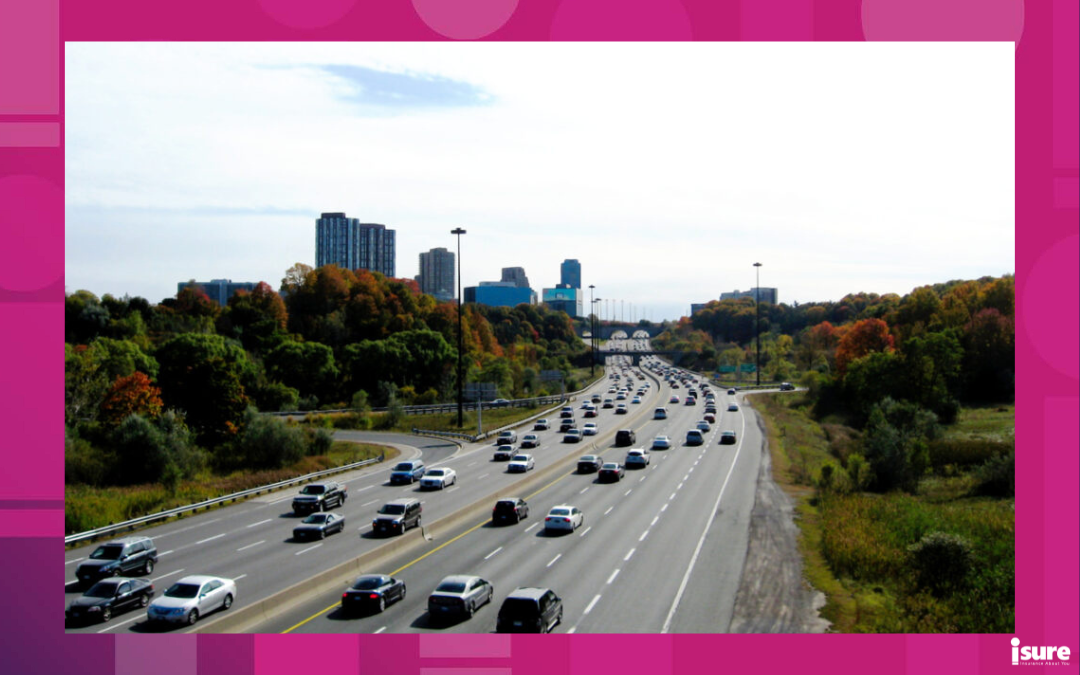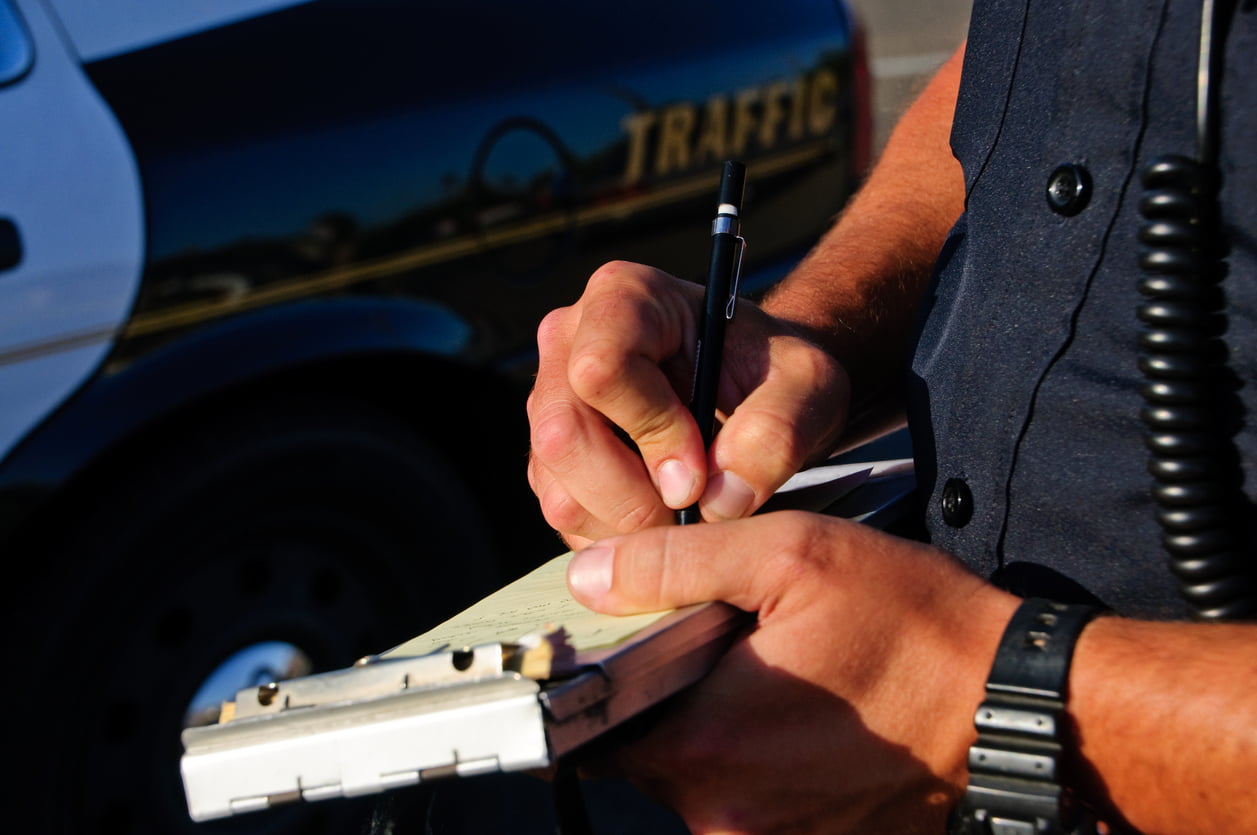What is road rage?
Road rage is defined in the Merriam-Webster Dictionary as “a motorist’s uncontrolled anger that is usually provoked by another motorist’s irritating act and is expressed in aggressive or violent behaviour.” Therefore, it isn’t so much defined by a specific action, but instead, as a negative emotional response or aggressive reaction to a situation or another driver. Road rage creates dangerous driving conditions for everyone on the road, making it important to recognize aggressive driving when it arises.
Common causes of road rage
The causes of road rage and aggressive behaviour behind the wheel are as varied as the driver experiencing them. While some you bring on yourself by your actions, others are the result of those around you, provoking a response from you with their actions.
Here are some of the main causes:
- Elevated stress levels
- Traffic congestion and poor driving conditions
- Poor driving habits – failure to signal, check blind spots or distracted driving
- Reactions from other drivers
- Being tired or driving for too long without a break
- Negative mindset
- Anger at another driver’s actions (e.g. being cut off or not allowed to merge into a lane, etc.)
- Frustration because the driver is in a rush or running late for an appointment
While you cannot control the actions or emotions of other drivers, there are things you can do to ensure you stay level-headed while driving.
What is the difference between road rage and aggressive driving?
The Traffic Injury Research Foundation (TIRF) defines aggressive driving as actions that “encompass behaviours such as running red lights, street racing, excessive speeding, swearing, using the horn when annoyed, and taking risks.” These terms are often interconnected. Aggressive driving is a traffic offence that happens on the roadway, and usually escalates into road rage. However, road rage does not always happen in cases of aggressive driving. Other forms of road rage can include stunt driving and speeding.
Signs of road rage and aggressive behaviour
Some of the behaviours you will see exhibited as a response by some to aggressive behaviour are:
- Screaming and using aggressive language
- Using aggressive hand gestures
- Honking in an aggressive manner
- Speeding
- Cutting people off in traffic
- Weaving through traffic or switching lanes at high speeds
- Brake checking, or intentionally braking to force the driver behind to brake
- Tailgating, or aggressively following a driver without maintaining a safe distance
- Exiting the vehicle to threaten other drivers with physical violence or actually physically attacking other drivers
- Exiting the vehicle and aggressively confronting other drivers
- Using crude language or disregarding rules of the road with other drivers, pedestrians, or cyclists
Road rage statistics in Ontario
When it comes to the respondents of the RATESDOTCA study, 5% of drivers who voted yes to engaging in road rage have stated they have rolled down their window to yell at someone while on the road. On the contrary, 35% of people in the study state that they’ve witnessed such actions. Similarly, 8% of drivers state they have used an obscene gesture at some point while on the road, while 41% have stated they’ve only witnessed such actions. Many other characteristics of road rage made themselves apparent during the study, with 15% admitting to tailgating, 14% admitting to cutting off a driver and 12% admitting to brake-checking.
However, the most concerning portion has to be the amount of people admitting to intentionally colliding with another vehicle. In this case, 5% admit they have done it themselves, while 34% state they have witnessed such dangerous behaviour.
Additional aggressive driving statistics
In April 2021, a survey by InsuranceHotline.com reported a number of startling statistics about road rage and related behaviour among Canadian drivers. Over 1,500 Canadians across the country were polled about their driving habits and behaviour behind the wheel:
- 95% of drivers interviewed admitted to experiencing road rage
- 85% of drivers admit to speeding
- 73% responded that they “regularly feel frustrated” at other drivers
- 60% have honked out of anger or frustration
- 58% of drivers have aggressively weaved in and out of traffic
- 57% admit to swearing and making offensive hand gestures
If you encounter an aggressive driver on the road…
While you cannot control the actions or emotions of other drivers, there are things you can do to ensure you stay level-headed when driving. Here is what to do if you are approached or threatened by a driver with road rage:
- Stay as far away as possible and maintain your focus on the road. Slow down or change lanes, let the driver pass you and give yourself room at intersections to drive away.
- Record a description of the car and note the licence plate number, if possible, so that you can report him or her to the police for the sake of everyone’s safety.
- Do not engage with or challenge the offender in any way. Avoid making eye contact. Ignore the driver’s rudeness and don’t give into the temptation to react or you might escalate the risky behaviour.
- Put your safety first. If an aggressive driver starts to follow you, never get out of your vehicle, lock your doors and head to the nearest police station. Never stop to confront an aggressive driver.
If you find yourself being aggressive behind the wheel…
While no one has a crystal ball to predict what might happen on their daily commute, the Insurance Information Institute (III) has a few suggestions to reduce the risk of being triggered by others on the road:
- Leave plenty of time to get where you need to go. When you’re in a hurry, your patience is short and you are much more likely to become aggravated. Check for traffic or road closures well in advance of your departure time.
- Remember other drivers are not annoying you on purpose. People make mistakes or they might be driving more slowly for a reason (i.e. being lost). Try not to let your emotions get the better of you.
- Don’t use hand — or single-finger — gestures other than to wave at someone who lets you into your lane.
- Don’t tailgate slow drivers. If the car in front of you has to stop short and you rear-end it, the accident will be considered your fault.
- Don’t honk your horn insistently. It won’t make anyone go any faster and it’s annoying to other drivers. It increases everyone’s stress levels, which may lead to more aggressive behaviour.
- Never stop to confront another driver. It can lead to a dangerous situation for all.
- Build positive driving habits. Avoid speeding and keep plenty of distance between you and the car in front.
Does insurance cover road rage situations?
Can you claim for road rage accidents on your car insurance? That depends. If you’re a victim of an accident caused by another motorist’s careless or dangerous driving, which can be a result of road rage, then you’ll most likely be covered. If you have collision or comprehensive coverage, your insurer will typically pay for damage to the vehicle. Many characteristics of road rage fall under the category of careless driving. If caught careless driving, you can potentially face conviction. Not only can this result in a premium hike, but you can also be handed up to six demerit points. Additionally, if you’re caught with three or more minor convictions, you may no longer be able to obtain insurance from most standard insurance companies. This will result in you having to move into the high-risk market.
It’s important to realize that road rage is listed as an exemption in many auto insurance policies. This is because any damage or liability stemming from aggressive driving isn’t considered an accident, but rather as having been caused by risky behaviour. Details can be found in your contract; however, it is your insurance company’s discretion to cover road rage or not. But they must clearly outline this exclusion in the contract. Contact your isure broker to confirm details of coverage on your policy.
Reporting road rage incidents to the police
If road rage is a serious concern to you or makes you feel that there is a threat to your life, then you may want to report it to the police. The Ontario Provincial Police allow you to report an instance of road rage from your phone or computer. Your report will be reviewed by an OPP officer and they may contact you for further details. You may report instances of:
- Speeding
- Unsafe passing or changes of lanes
- Tailgating closely
- Distracted driving
- Threats
- Disobeying traffic signals
If you encounter a hazardous road rage situation, then you may call the police for help by dialling 911 or 1(888) 310-1122. If you are being followed, do not stop or go home. Instead, get help from the police and be sure to make a note of the licence plate, as well as the colour, make, and model of the vehicle.
As per MTO, you may do the following if you feel threatened:
- Don’t step out of your vehicle and keep the doors closed
- Use your car’s Bluetooth system to call the police (if safe to do so)
- Honk your horn to attract the attention of other road users
- Drive to a police station or a public place, but not your home, if someone follows your car
Road rage isn’t a crime under the Criminal Code or Highway Traffic Act, but the effects of it can lead to tickets and impact how much you pay for Ontario car insurance.
Letting anger get the best of you behind the wheel can lead to several aggressive driving behaviours that can cause a collision, or worse. Remember to leave yourself plenty of time to get where you need to be. And if you do find yourself confronted with aggressive behaviour on the road or have lost your patience with the other drivers around you, remember to breathe and take it in stride. If a situation escalates, road rage altercations can put both your life, and car insurance rate, at risk.
As always, feel free to contact your isure broker with any policy or claim-related questions.




